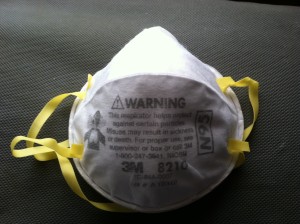
Feb 17, 2014 | Filing a Claim
What injuries does Vermont workers compensation cover?
In Vermont, if you suffer an “injury” at work, it is covered by the Vermont Workers’ Compensation Act. But what does the word “injury” really include? Is it only the obvious injuries like broken legs, busted shoulders, and concussions? Am I excluded if I have a mental injury from work? No. In fact, the Vermont workers compensation rules define “injury” as “any harmful work-related change in the body.” So instead of being narrow, an “injury” in Vermont is defined broadly. It includes much smaller and less obvious “injuries” than just the big, scary ones.
Let’s get into specifics. Clearly, a broken bone, a torn rotator cuff, or a concussion are considered “harmful” changes to the body which are covered by Vermont workers’ compensation. What we also know is that less obvious work injuries are covered too, like carpal tunnel syndrome from repetitive motion, a deep vein thrombosis from too much sitting, or a heart attack from some extraordinary exertion or stress at work — often even if you had a history of heart disease. Occupational diseases are covered too, like allergic reactions to latex or lung disease from inhaling some scary substance. The Vermont work comp system covers all Vermont work injuries, no matter how big or how small.
In addition, it is not just physical injuries that are covered for Vermont workers compensation purposes; mental injuries are also covered if caused by your work (or by your work injury). One type of covered mental injury is a “physical-mental” injury, in which an employee suffers a physical injury which results in an emotional injury, like depression from an inability to work. In addition, “mental-mental” injuries are sometimes covered too, requiring proof that some unusual or extraordinary stress caused your emotional harm — not a prior physical injury. Although somewhat more difficult to prove, compensable mental-mental injuries could include PTSD from witnessing something horrible at work, or depression from outrageous treatment by a supervisor or coworker. Unfortunately, personnel decisions (like promotions or transfers) are not covered under Vermont workers’ compensation.
In other words, a Vermont employee isn’t just entitled to work comp benefits for big injuries, like broken bones. Instead, less memorable injuries like finger lacerations, sprained ankles, and low back strains are covered too (and are often just as painful as broken bones). So are occupational diseases and emotional injuries. Contact a Vermont workers’ compensation lawyer (like me), or the Vermont Department of Labor (click here), to find out if your work injury might entitle you to Vermont workers’ compensation benefits. Even if you don’t miss any work, you still might be entitled to have your medical bills paid.